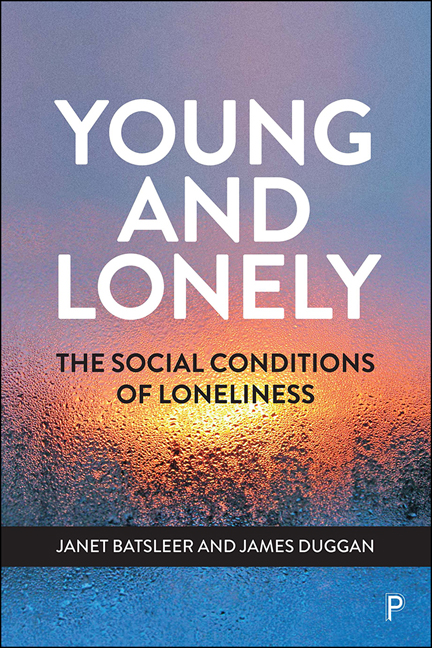Book contents
- Frontmatter
- Contents
- Notes on the Authors
- Acknowledgements
- Preface
- 1 Animate, Attune, Amplify
- 2 Finding Oneself a Loneliness Agenda
- 3 I’M New Here: Creating a New Research Project and A Young Person Led Research Agenda
- Part I The Social Conditions of Loneliness
- Part II The Experience of Loneliness
- Part III Building Friendship and Connection
- References
- Index
Part III - Building Friendship and Connection
Published online by Cambridge University Press: 18 March 2021
- Frontmatter
- Contents
- Notes on the Authors
- Acknowledgements
- Preface
- 1 Animate, Attune, Amplify
- 2 Finding Oneself a Loneliness Agenda
- 3 I’M New Here: Creating a New Research Project and A Young Person Led Research Agenda
- Part I The Social Conditions of Loneliness
- Part II The Experience of Loneliness
- Part III Building Friendship and Connection
- References
- Index
Summary
We now focus on a range of methods of finding friendship and connection, enabling the complexity of young people's experience to be foregrounded and explored. In this final part of the book there is a full discussion of the creative methods used in the Loneliness Connects Us collaborative research, which will give a sense of some of the ways this sensitive topic might be approached and become a theme of courageous conversation.
This part of the book draws strongly on the underpinning understandings of critical youth and community work as a practice of informal/non-formal education and accompaniment from which the research project started and as a practice of education in radical democracy. In particular, it starts from the assumption that there is a great deal to be learned by listening to and attending carefully to the practices which young people are already developing in response to loneliness, tuning in to them and supporting their development, strengthening and amplifying their shared agentic capacities. Youth work's classic emphasis on young people as ‘creators not consumers’ is to the fore in this part of the discussion.
We return in this part to methods of animation, attunement and amplification/advocacy which we worked with in this research project and explore them in more depth. The question of what it means to give and receive support is explored from the perspective of what ‘befriending’ might mean. Democratic youth work as a form of radical education and creative practice as a form of socio-cultural animation provide the field of praxis and theorisation for the following chapters. The range of theoretical stimuli we have used here are as eclectic as youth work and creative engagements themselves: inspired by a variety of writers and thinkers on critical dialogue, on listening and on collaborative forms of enquiry and creativity. But we seek to emphasise throughout this final part the forms of relationality through which new understandings have emerged. We also wish to illuminate the possibility of combining deep listening with an improvisatory creativity through which forms of solidarity can emerge.
- Type
- Chapter
- Information
- Young and LonelyThe Social Conditions of Loneliness, pp. 119 - 120Publisher: Bristol University PressPrint publication year: 2020



